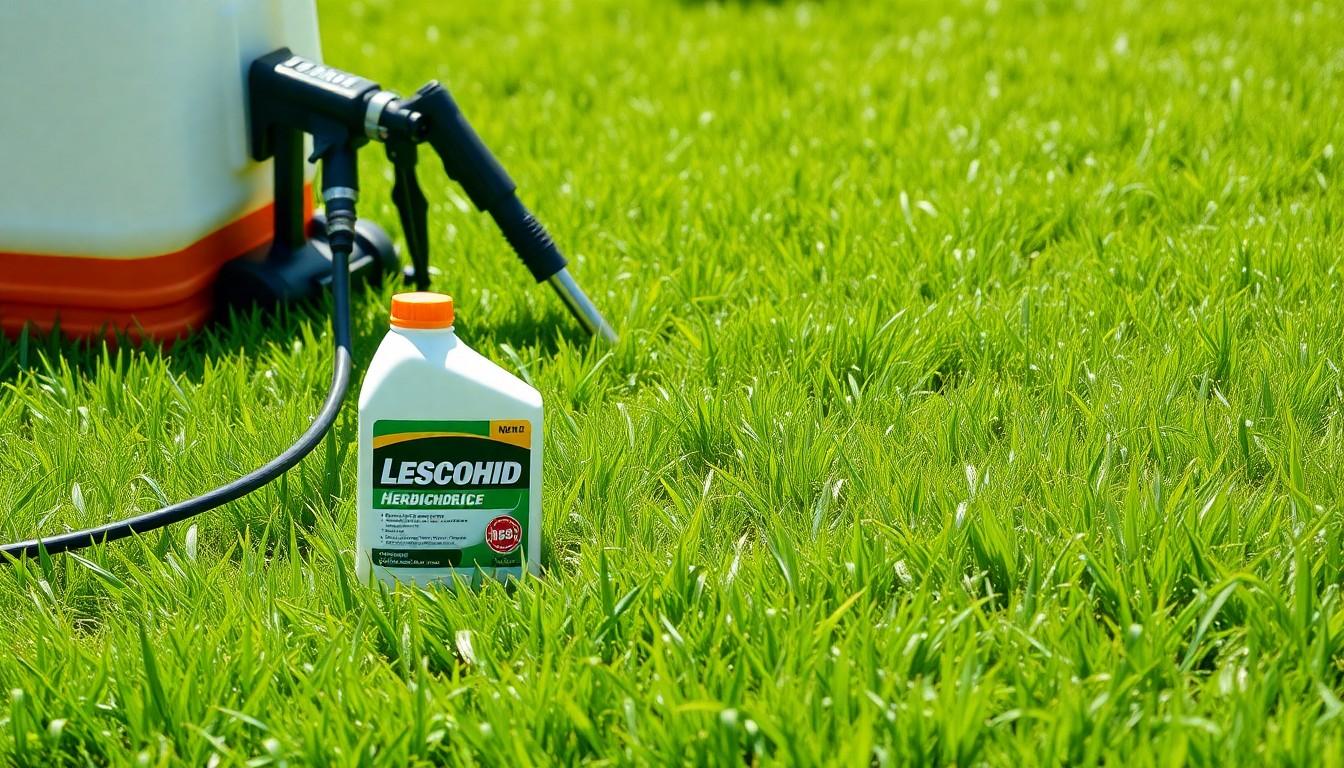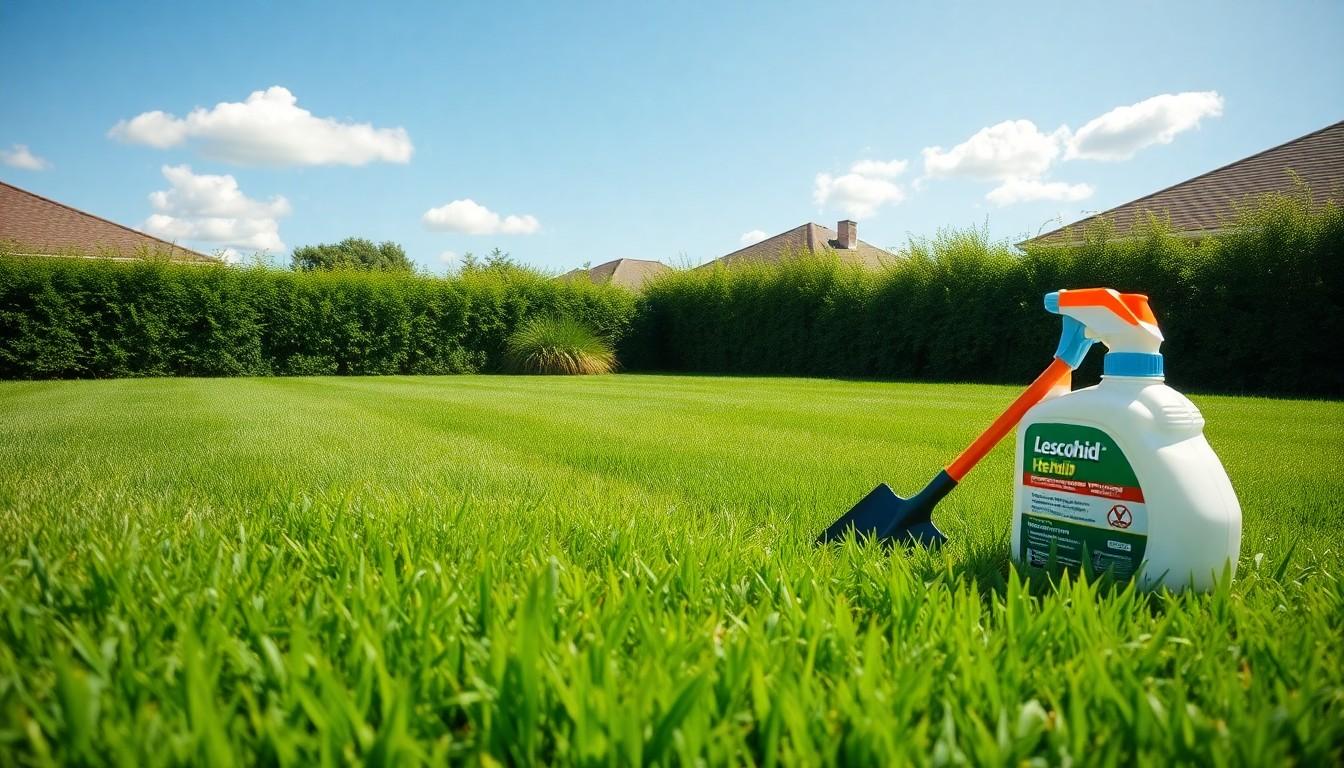Phone:
(701)814-6992
Physical address:
6296 Donnelly Plaza
Ratkeville, Bahamas.

When it comes to keeping a lush green lawn, choosing the right herbicide can feel like a high-stakes game of roulette. Enter Lescohid, the herbicide that’s been turning heads and tackling weeds like a pro. But is it really the best choice for grass? With so many options on the market, it’s easy to feel overwhelmed.
Lescohid herbicide stands out as an effective solution for weed control in lawns. Its formulation targets a broad spectrum of weeds while promoting healthy grass growth.
Lescohid contains key active ingredients that effectively inhibit weed growth. Imidazolinone and glyphosate serve as primary elements, disrupting the photosynthesis process in targeted weeds. These ingredients work by penetrating the leaf surface and translocating within the plant. Consequently, the plant eventually dies, providing a clear advantage in controlling perennial and annual weeds. This mechanism promotes grass without harming established roots. For optimal results, applying it during active weed growth periods ensures maximum efficacy.
Lescohid can be applied through various methods for convenience. Spraying is a common technique, allowing for even coverage across the entire lawn. Specifically, it’s essential to apply the herbicide when temperatures are moderate, typically between 60°F and 80°F. Spot treatments address localized weed issues effectively. Additionally, tank mixing with fertilizers helps enhance results by promoting healthier grass. Always adhere to label directions for application rates and frequency to maintain lawn safety while achieving the best results.

Lescohid herbicide demonstrates effectiveness for various grass types, making it a valuable option for lawn maintenance. Its active ingredients work uniquely with different grass species.
Cool season grasses thrive in northern climates and include types such as Kentucky bluegrass and fescue. Lescohid effectively controls weeds in these grass varieties without damaging their roots. Application during the early spring or fall enhances its effectiveness, as these are prime growth periods for cool season grasses. Users note optimal results when following label instructions closely, ensuring that application rates align with grass health.
Warm season grasses, including Bermuda grass and zoysia, flourish in southern regions and exhibit different growth patterns. Lescohid functions well on these grass types, especially when temperatures rise. Spot treatments are preferable, as they limit herbicide exposure to desirable grass. Maintaining appropriate soil moisture levels prior to application further boosts effectiveness. Targeting weed growth during the active growing season yields better results, keeping lawns healthy and vibrant throughout the summer.
Comparing Lescohid with other herbicides provides valuable insight into its effectiveness for grass maintenance.
Lescohid shows superior performance when tackling a diverse range of weeds. It effectively combats stubborn varieties like dandelions and crabgrass, often outperforming competitors such as Roundup and Preen. Studies demonstrate a notable reduction in weed density, with up to 90% control within weeks of application. Not only does it target broadleaf and grassy weeds, but it also supports grass growth during treatment. Optimal application timing correlates with enhanced results, especially during active weed growth periods.
Lescohid prioritizes user safety and environmental considerations. Its formulation minimizes risks to desirable grass, making it a preferred choice for lawn enthusiasts. When used according to label instructions, users experience low levels of toxicity to non-target plants and wildlife. Compared to other options, such as glyphosate-based products, Lescohid poses fewer environmental hazards. Its limited impact on soil and water quality contributes to sustainable lawn care practices, aligning with eco-conscious gardening approaches.
Users often share their encounters with Lescohid, providing insight into its effectiveness on various lawns.
Experts in lawn care frequently commend Lescohid for its targeted approach to weed control. Many professionals note its efficacy against tough weeds like dandelions and crabgrass. Reviews indicate that Lescohid not only eliminates unwanted plants but also promotes healthy grass growth. Industry evaluations consistently highlight its minimal impact on non-target plants, emphasizing its safety. According to professionals, proper application significantly enhances results. Recommendations suggest using Lescohid during the peak growth seasons for optimal effectiveness.
Homeowners offer a wealth of positive experiences with Lescohid. Numerous users report significant improvements in their lawns after application. Feedback highlights a noticeable reduction in weeds within weeks, with some claiming up to 90% control. Many appreciate its easy application methods, such as spraying and spot treatments. Users often mention the resilience of their established grass, expressing relief at the lack of adverse effects. Additionally, several homeowners discuss their satisfaction with the results across various grass types, ensuring a healthy lawn throughout the growing season.
Lescohid herbicide proves to be a strong contender for effective weed management in lawns. Its ability to target a wide range of stubborn weeds while preserving grass health makes it a preferred choice among homeowners and professionals alike. With its unique formulation and user-friendly application methods, Lescohid stands out in a crowded market.
By following application guidelines and timing treatments during active weed growth, users can achieve impressive results. The positive feedback from satisfied customers further underscores its effectiveness. For those seeking a reliable herbicide to maintain a vibrant and healthy lawn, Lescohid is certainly worth considering.